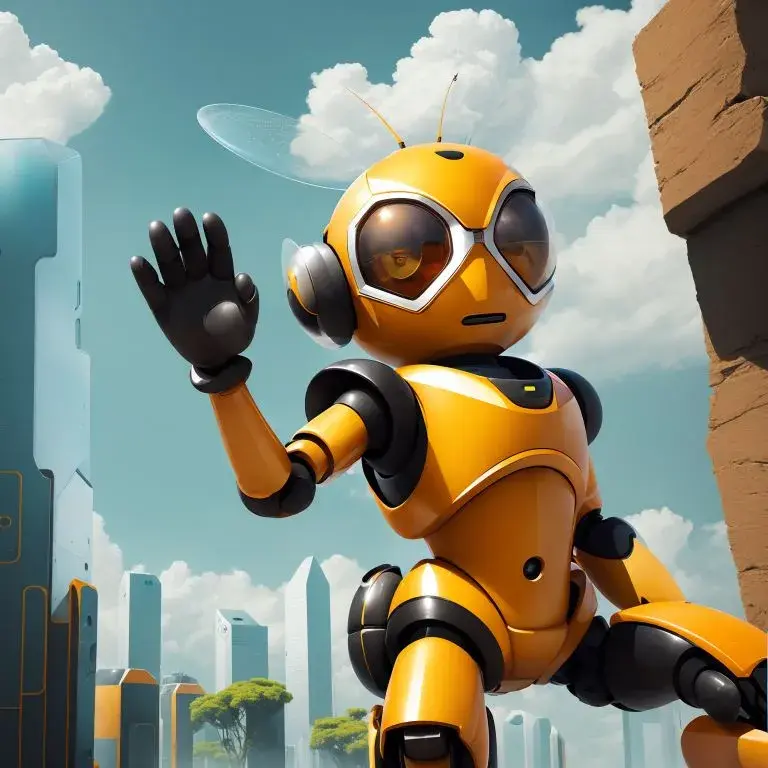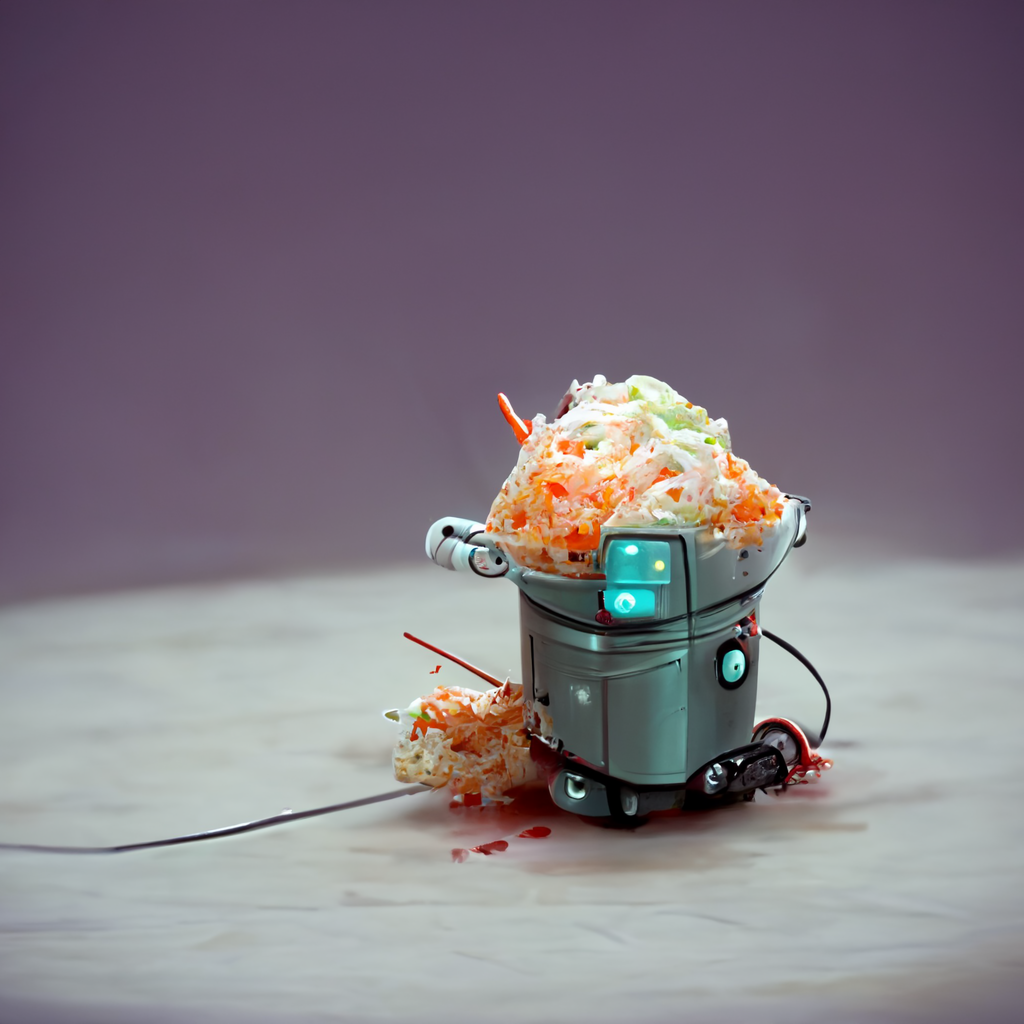I’m actually surprised by the comments in here. This technology is incredibly disruptive to authors, if they are correct that their intellectual property has been misused by these companies to train LLMs, then they absolutely should have the right to prevent that.
You can both be pro AI and advancement, and still respect creators intellectual rights and the right to not have all content stolen by megacorporations and used by them to create profits while decimating entire industries.
Eventually the bad actors are going to lose a lot of money trying to litigate their theft of people’s art. It was always going to end up in the legal system. These apps are even programmed to scrub watermarks and signatures. It’s deliberate theft.
Yes, thank you for this comment.
‘Reading my book infringes on my copyright.’ say confused writers.
This is a strawman.
You cannot act as though feeding LLMs data is remotely comparable to reading.
Why not?
Because reading is an inherently human activity.
An LLM consuming data from a training model is not.
LLMs forcing us to take a look at ourselves and see if we’re really that special.
I don’t think we are.
For now, we’re special.
LLMs are far more training data-intensive, hardware-intensive, and energy-intensive than a human brain. They’re still very much a brute-force method of getting computers to work with language.
Because the LLM is also outputting the copyrighted material.
So could any human that got inspired by something…
This is what I never understood about the whole training on AI thing.
When a human creates an artwork, they don’t do it out of a vacuum. They’ve had a lifetime of inspiration from artwork they’ve discovered that inspires then to create something wholly new. AI does the same thing
The AIs we are talking about are large language models. They take human work as input and produce facsimiles. They are owned by individuals or companies that have no permission to exploit in this way intellectual property tied to other people’s livelihoods to copy them.
LLMs are not sentient, they don’t have inspiration, they are not creative and therefore do not create in the sense an artist would. They are an elaborate mathematical equation.
“Training” an AI has nothing to do with training an actual living being. It’s just tuning: adjusting an algorithm incrementally until the operator is satisfied with the result. I think it’s defendable to amount this form of extraction to plagiarism.
Most likely, if you ask ChatGPT to summarize a famous book, it does not need to have ever trained on the book itself. The easiest way for an LLM to create a summary of something is to base its summary off existing summaries created by humans. If it’s ruled in court that ChatGPT is infringing on the copyright of a book’s author only by repeating information it acquired from other summaries created by humans, what implications does that have for the humans who wrote the other summaries?
Intellectual property in general is a ridiculous concept.
I partially agree with you, but I think you’re missing the end goal of Facebook et al.
As HughJanus pointed out it’s not really any different than a person reading a book and by that reasoning using copyrighted material to train models like these falls well within the existing framework of “fair use”.
However, that depends entirely on “the purpose and character of the use, including whether such use is of a commercial nature or is for nonprofit educational purposes.” I agree completely with you that OpenAI’s products/business (the most blatant violator) does easily violate “fair use” due to that clause. However they’re doing it, at least partially, to “force the issue” on the open question of “how much can public information be privatized?” with the goal of further privatizing and increasing commercial applications of raw data.
As you pointed out LLMs can only create facsimiles and not the original work, and by that logic they can’t exactly replicate the inputs either.
No I don’t think artists can claim that they own any and all “cheap facsimiles” of their works, but by that same reasoning none of these models produced should be allowed to be the enforceable property of any individual/company either.
For further reading check out:
- Kelly v. Arriba Soft Corporation on why “thumbnails” (and by extension LLMs, “eigen-images”, etc.) are inherently transformatve and constitute fair use.
- Bridgeport Music, Inc. v. Dimension Films for the negative impacts that ruling has had and how it still doesn’t protect the artists from their stuff being used for training and LLM.
- “Variational auto-encoders” for understanding on how the latest LLMs actually do achieve a significant amount of “originality” and I would argue are able to be minimally creative.
You’re wrong
Yeah, people are just trying to cash in on AI by suing companies that train AI.
It’s the AI companies cashing in with other people’s work so far.
AIs are trained for the equivalent of thousands of human lifetimes (if not more). There’s no precedent for anything like this.
In other news, old man yells at clouds.
People keep taking issue with this articles use of “summarizing” and linking to wikipedia… Summaries of copyrighted work are obviously not illegal.
This article is oversimplified and does a crummy job of explaining the problem. Ars Technica does a much better job explaining.
The fact that the ai can summarize these works in detail is proof that they were trained using copyrighted material without permission, (which is not fair use) Sarah Silverman is obviously not going to be hurt financially by this, but there are hundreds of thousands of authors who definitely will be affected. They have every right to sue.
Why does “fair use” even fall into it? I’m not familiar with their specific license, but the general definition of copyright is:
A copyright is a type of intellectual property that gives its owner the exclusive right to copy, distribute, adapt, display, and perform a creative work, usually for a limited time.
Nothing was copied, or distributed (in a form that anybody can consider “The Work”), or displayed, or performed. The only possible legal argument they have is adapting as a derivative work. And anybody who is familiar with how an LLM works knows that the form that results from reading in content is completely different from the source.
LLMs/LDMs are not taking in billions of books and putting them into a database. It is a very lossy process. Out of all of the billions of images trained from the Stable Diffusion database, the resulting model is 4 GBs. There is no universe where you can store billions of images into a mere 4 GBs. Stable Diffusion cannot and will not, pixel-by-pixel, reproduce a Van Gogh. It can make something that kind of looks like a Van Gogh, but styles are not copyrightable.
The same applies to an LLM like ChatGPT. It cannot reproduce entire books, or anywhere close to that. If you ask it to recreate Page 25 of Silverman’s book, it can’t do it. If it doesn’t even contain a minor portion of the original material, it can’t even be considered a derivative work.
They don’t have a case. They have a lot of publicity and noise, but they will lose to inevitability.
You make a lot of excellent points, but I think the main issue of contention is just using copyrighted work to train generative AI without the author’s permission regardless.
If they did ask permission, there would be no problem. But an author or artist should be given the choice if their work is going to be used to train an AI.
I think the main issue of contention is just using copyrighted work to train generative AI without the author’s permission regardless.
You must define that in legal terms. This is a lawsuit, after all. It’s not illegal to “just use” copyrighted work. The words “generative AI” are not in a federal or state bill anywhere in the US.
They can have an “issue of contention” all they want, but if they can’t prove anything legally, they have nothing.
Exactly! You can’t just be like “AI bad” in front of the judge ._.
if asked by a user prompts chatGPT to summarize a copyrighted book, it will do so.
So will a human. Let’s stop extending copyright law. Also, how you know it read the book, and not a summary of it, of which there are loads on the internet?
This is why I am pro AI art. It’s no different than a human taking inspiration from other work.
Nobody comes up with anything truly original. It’s all inspired by someone before them.
I don’t know how anyone is pro AI anything other than the pigs making money from it. Only bad can result of it. And will.
I don’t know how anyone can be anti AI.
It’s just a tool. To say that only bad can result of it is a bold claim that doesn’t make any sense.
Can you provide an example?
Just wait and see.
Only bad can result from it, just because some company is making profits?
No, that wasn’t a correlation. Only bad can result from it. Also, companies making profit love it. Separate things.
Also, how you know it read the book, and not a summary of it, of which there are loads on the internet?
In the case of ChatGPT, it’s hard to tell. OpenAI won’t even reveal what their training dataset was.
Researchers have done some tests to tease this out, and they’re pretty confident that it has read quite a few books and memorized them verbatim. See one of my favorite papers in a while, Speak, Memory: An Archaeology of Books Known to ChatGPT/GPT-4.
Beyond that, it’ll try to summarize a book, but it often can’t do so successfully, although it will act like it has. Give it a try on something that is even a little bit obscure and it can’t really give you good information. I tried with Blindsight, which is not something that’s in the popular culture, but also a Hugo nominee, so not completely obscure. It knew who the characters were, and had a general sense of the tone, but it completely fabricated every major plot point that I asked about. Did the same with A Head Full of Ghosts, which is more well known but still not something everyone has read, and it did the same thing.
One thing I found that’s really fun is to ask it a question and then follow up with something like “Are you sure about that?” It’ll almost always correct itself and make up something else. It’ll go one step further and incorporate details you ask about. Give it a prompt like “Are you sure this character died of natural causes? I thought they were killed by Bob” and it will very frequently say you’re right and make up a story along those lines that’s plausible within the text. It doesn’t work on really popular stuff; you can’t convince it that Optimus Prime saves Luke Skywalker in RotJ, but anything even a little less well known and it’ll tell you details that it’s making up whole cloth with complete confidence.
Another highly amusing thing to do is to ask it about non existent chemicals or antenna types. (Try “inverted tripole” or “dinitrogen azide”) It always generates plausible but incorrect answers (eloquent bullshit).
A lot of these comments are missing a large point which is that, if the claim is true, the books are being pirated and then effectively used for a commercial application.
So the authors are losing money through this process and did not give their permission for their work to be used in a commercial way.
The decision of this case will be wildly important for the development of AI.
If they have access to some library with those books they are ok.
I doubt they just used pirated book to train their AI and than publishing it without having non pirated paper trail, it is not that hard.
But let’s see.
The only a problem here is how have they accessed the books, they don’t share copyrighted material to others. But I don’t think anyone should be held guilty for reading a book, so I hold the same stance for AI.
If you don’t want people to read your book, just don’t publish it.
Do you know what library genesis and z-library are?? They are literally libraries of pirated materials.
And yeah they can read the book, but shouldn’t be able to use its content in a commercial way (e.g. make money) off of its contents without the permission of the writer/copyright holder.
Now that’s interesting. I really have been waiting for something like this. Wonder if the LLM companies now actually have to explain where their models get the detailed information about the book from. Or if they can get away with stating that they have no idea how their own system works
It is legal to create new knowledge about works or bodies of works. They don’t have a leg to stand on.
“The Library.”
My pie in the sky hope is that copyright somehow becomes less stringent after all of this.
Don’t get me wrong I want protections for creators and support reasonable copyright (life of the author +25 years with the possibility of a 15 year extension) but letting a company lord over an IP for damn near a century isn’t ideal for anyone.
The major scenario that I at least hope holds true out of this is that the AI “creations” aren’t eligible for copyright themselves. If the powers that be allow all this AI created stuff copyright protection it’s going to be a gigantic mess.
Pure “prompt → image” with nothing in between I absolutely agree. It’s lazy and ripe for abuse by copyright trolls. That being said there’s a lot more in the world of AI assisted art than what most people are aware of.
Determining where the legal lines will be drawn is going to be a monumental task but I think there’s value in allowing authors to retain copyright on AI assisted works. I also can’t see the free open source models not going the way of restricting training data to public domain works like Adobe did with Firefly if that becomes a legal issue.
If they’re being trained via Library Genesis and Z-Library, shouldn’t those be the target of the suit for enabling/allowing that?
I was expecting lawsuits to fly over software source code laundering, but yeah, this makes sense too.
Lawyers goings to have lots of gigs these days
If they first don’t get fired for using ChatGPT and not double-checking the results.
That’s ironical
I tested by asking ChatGPT 3.5 specific questions about The Bedwetter, and it seems like it was not trained on the full text of the book. I asked it what is the first sentence, and then what is the second paragraph, and it gave plausible but incorrect answers. I asked it for the table of contents, and then if a specific chapter was in the book, and it said “my responses are generated based on pre-existing data and do not have real-time access to specific book content”. I asked who wrote the foreward, and who wrote the afterward. It said Patton Oswalt wrote the foreward and that there is no afterward. In reality, Sarah wrote the foreward and God wrote the afterward.
ChatGPT conversation
Table of contents and first chapter from Google Books.LLMs compress data, there’s no way ChatGPT could remember every detail of the book alongside all the other information it stores in its encodings. The issue isn’t whether the entire text of the book is contained within the encodings, it’s whether it was trained on the book in the first place.
GPT3 is 800GB while the entirety of the English Wikipedia is around 10GB compressed. So yeah it doesn’t store evey detail of everything but LLMs do memorize a lot of things verbatim. Also see https://bair.berkeley.edu/blog/2020/12/20/lmmem/
I guess she found a way to make money on a book nobody is buying after all.
They made a musical out of it so I’m sure it sold just fine. The pointless disparaging based on no facts isn’t very useful to this topic.
















